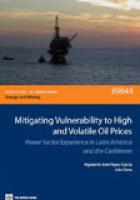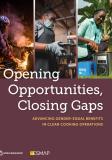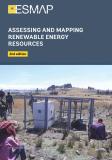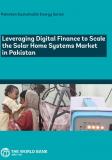Publications

Countries heavily dependent on imported oil to power a significant portion of their electricity generation are especially vulnerable to high and volatile oil prices. In net oil-importing countries worldwide, high and volatile oil prices ripple through the power sector to numerous segments of the economy. As prices move up and down, so does the cost of electricity production, which has far-reaching effects on the economy, fiscal and trade balances, businesses, and household living standards. High and volatile oil prices affect economies at both a macro and micro level.
The major direct effects at the macro level are a deteriorating trade balance, through a higher import bill, reflecting a worsening in terms of trade; and a weakening fiscal balance due to greater government transfers and subsidies to insulate movements in international energy markets. At the micro level, investment uncertainty results from the higher risk of engaging in new projects and associated development and sunk costs, which, in turn, affects policy decisions and economic growth.
This study responds to the needs of policy makers and energy planners in oil-importing countries to better manage exposure to oil price risk. The study's objective is threefold.
- First, it analyzes the economic effects of higher and volatile prices on oil-importing countries, with emphasis on the power sector, using examples from Latin America and the Caribbean (LAC).
- Second, it proposes a menu of complementary options that can be applied over multiple time frames. Several structural measures are designed to reduce oil generation and consumption, while a range of financial instruments are suggested for managing price risk in the short term.
- Finally, it attempts to quantify some of the macroeconomic and microeconomic benefits that could accrue from implementing such options.



